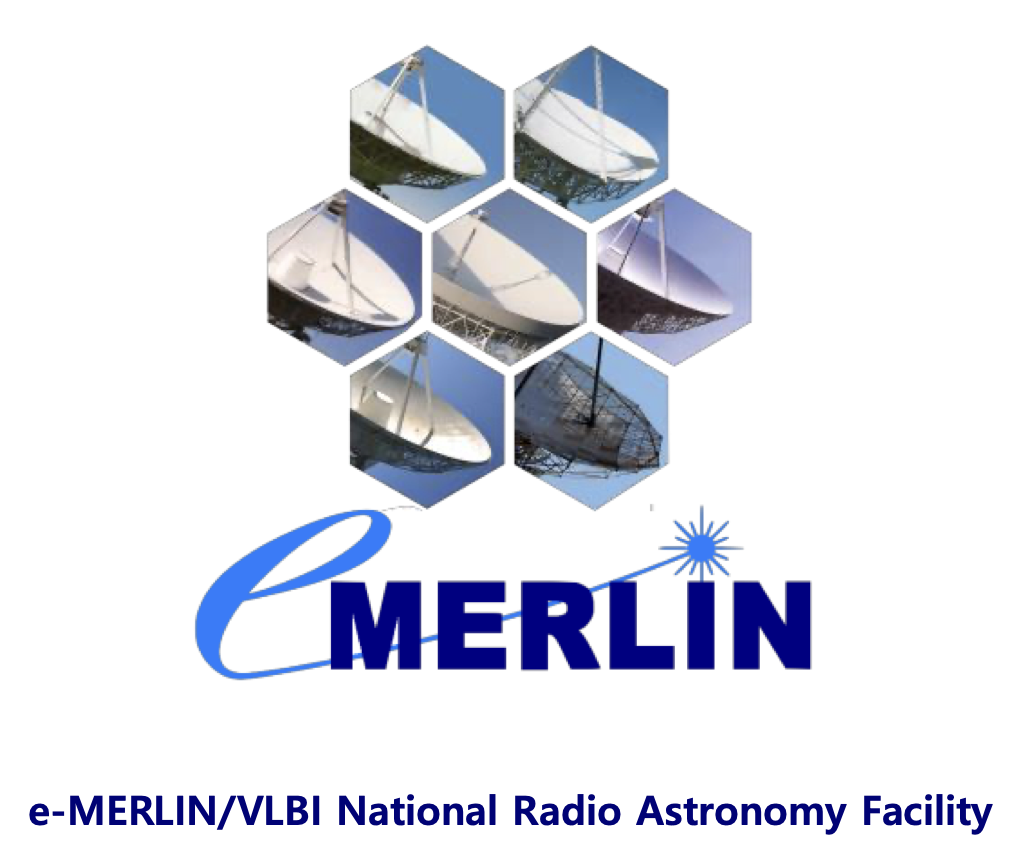
e-MERLIN requests proposals from the international astronomical community for observations to be made during Cycle-19. Proposals are competitively peer-reviewed under standard STFC rules by the e-MERLIN Time Allocation Committee. Allocation will be made on the basis of scientific merit and technical feasibility alone. For full details click here.
e-MERLIN Science: e-MERLIN observations address a broad range of science topics, https://www.e-merlin.ac.uk/science.html and its unique combination of angular resolution (mas) and sensitivity (microJy) provide crucial insights in multiple science areas including:
- Star-formation and black hole growth in galaxies.
- The physical processes which govern the formation of stars.
- The modes of activity in nearby galaxies.
- Transient radio sources.
- Radio spectral lines (masers and in absorption).
- The energetic processes in relativistic outflows from jets generated by black holes and compact objects.
- Along with multiple other applications.
e-MERLIN provides high angular resolution (12 - 150 milli-arcsec) and high sensitivity (micro-Janksy) imaging at cm wavelengths as well as polarimetry, spectroscopy, and astrometry. e-MERLIN is an SKA-pathfinder instrument providing observations with resolutions and frequencies comparable to those that will be provided by SKA-mid.
Cycle-19 e-MERLIN Capabilities
[e-MERLIN observations between February 1st and July 31st, 2025 ]
Deadline for Receipt of Proposals: 13:59:59 UT on 24th October 2024
Ang. res. Sensitivity
L-band (1.25 - 1.75 GHz) ~150 mas ~12 uJy/bm*
C-band (4.5 - 7.5 GHz) ~ 40 mas ~10 uJy/bm*
K-band (19 - 25 GHz) ~12 mas ~130 uJy/bm
* Assumes inclusion of the Lovell Telescope at L/C-band and a full imaging track (~12hrs including calibration). It is envisaged that a limited amount of Lovell time will be available for programmes during Cycle-19. The full invitation for proposals, including technical specifications, and links to the e-MERLIN Sensitivity Calculator are available at: www.e-merlin.ac.uk/observe.html.
Access and financial support for e-MERLIN Scientists and Users: e-MERLIN is open to all users with projects allocated solely on the basis of scientific merit and technical feasibility. Additionally, e-MERLIN is one of the participating infrastructures in the European Union’s Horizon 2020 research and innovation programme. The OPTICON-RadioNet PILOT programme will provide facility access and financial support for users from eligible projects in Cycle-19. For further information or contact e-MERLIN staff (emerlin@jb.man.ac.uk).
EVN + e-MERLIN Observations: The full integration of e-MERLIN telescopes within the European VLBI Network is also available. This mode of observing provides e-MERLIN’s additional 'short-spacing' (10 - 200 km) component available to the EVN which allows imaging of a wider range of spatial scales. Proposals for e-MERLIN + EVN observations should be made via the EVN Programme Committee rather than through e-MERLIN directly. The next Call for EVN Proposals (including combined e-MERLIN + EVN observations) is detailed at www.evlbi.org. The next upcoming deadlines for EVN proposal submission are October 1st 2024, 1st February and 1st June 2025.
See https://www.e-merlin.ac.uk/tools/e-MERLIN_Cycle_19_CfP.pdf for a fuller version of this Cycle-19 Call for Proposals document
e-MERLIN proposals must follow dual-anonymisation guidelines and include additional information in the proposal submission.
See: https://www.e-merlin.ac.uk/observe.html for full details on Cycle-19 Proposals.
Contact:
e-MERLIN/VLBI National Facility, The University of Manchester,
Jodrell Bank Observatory,
Macclesfield,
Cheshire SK11 9DL,
United Kingdom
emerlin@jb.man.ac.uk